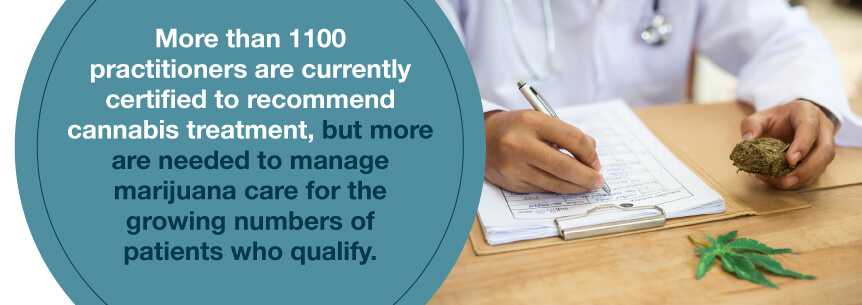
The New York State Health Commissioner, Dr. Howard Zucker, has introduced many changes to the state’s medical marijuana program that are important steps forward in the evolution of the program. If these new regulations are an accurate indication, Zucker intends to grow the medical marijuana program in New York to make more forms of healing cannabis available to patients and streamline the dispensary process.
A statement released by the Department of Health also pointed to their desire to welcome more practitioners into the program with additional training courses.
New York drafted new regulations to their medical marijuana program over the summer and published the proposed regulations at the end of August for a 30-day comment period. Many of the changes went into effect at the end of September, including:
Some claim the medical marijuana program in New York is struggling to survive and thrive. With more than 19 million residents in the state, the number of people registered for the program — just over 26,000 — indicates many patients are missing out on this opportunity for relief. Estimates show that more than one million New Yorkers have had cancer, which is just one disease that presents a pool of people who may need the benefits of medical marijuana.
It is clear from these regulation changes that the state is attempting to grow the medical marijuana program and make is accessible to more patients. Increasing production and the number of medical practitioners should be a good start.
The medical marijuana program in New York continues to grow and expand, increasing benefits for patients. The program was put in place to bring healing medicines to patients, especially those suffering from debilitating conditions who can’t find comfort or relief through other treatment methods. As the program grows, more people can access the cannabis medicine they need.

The state is also loosening regulations for practitioners to become certified in an effort to entice more doctors to participate. More than 1100 practitioners are currently certified to recommend cannabis treatment, but more are needed to manage marijuana care for the growing numbers of patients who qualify.
Since prospective patients will now be able to enter dispensaries before they qualify for the program, access to dispensary staff will increase their knowledge about how cannabis products may relieve their specific symptoms. Once they learn of the possibilities for relief, patients will be more likely to seek out a doctor who can qualify them for the medical marijuana program. Knowing they have options gives patients hope.
Patients who are extremely debilitated may still find it difficult to interact with dispensary staff, learn more about their product options and purchase the marijuana their doctor recommends. Until now, only qualified medical marijuana patients and their caregivers were admitted to licensed dispensaries. The new regulations make it possible for someone other than the designated caregiver to accompany a patient to the dispensary, as well. So, patients who need help getting around will find it more convenient to get the medicine they need.
New York Department of Health administers the medical marijuana program and continues to track patients, providers and producers. To qualify for the program, you need to schedule an appointment with a marijuana doctor certified by the state to recommend cannabis treatment for qualifying conditions.
If you’re suffering from a debilitating condition, use our website to find a licensed, cannabis-friendly doctor near you. You may also get information about the program from a licensed dispensary in your area.
At MarijuanaDoctors.com, we also offer an online search feature to help you find licensed dispensaries in New York. We’ve already gathered information about hours, location and typical appointment costs to make it easier for you to get the medicine you need. Browse our site for updated information about the medical marijuana program in your state.
No Information on MarijuanaDoctors.Com should be used to diagnose, treat, prevent or cure any disease or condition. You can view our Full Disclaimer here.